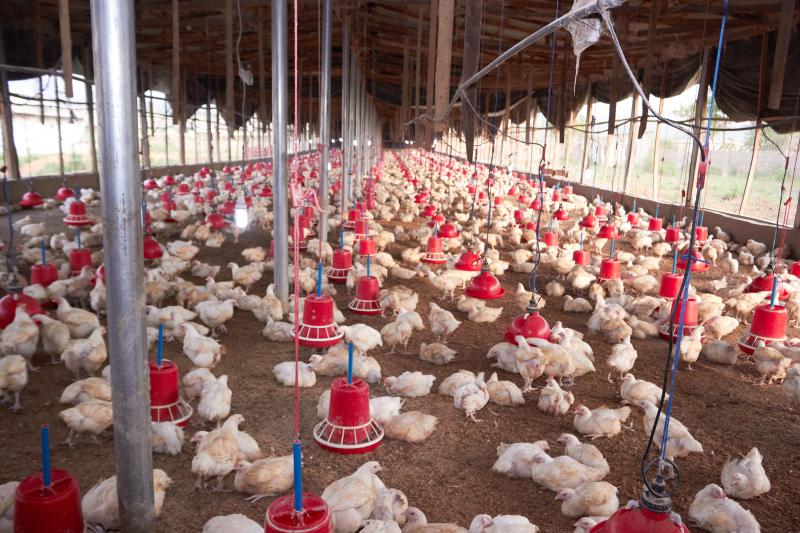The Delaware Department of Agriculture announced Jan. 3 that preliminary testing of a commercial broiler flock in Kent County has returned presumptive positive results for H5 avian influenza from the University of Delaware’s Lasher Laboratory in Georgetown, part of the National Animal Health Laboratory Network. Additional samples have been sent to the U.S. Department of Agriculture’s National Veterinary Services Laboratory for further confirmation.
Presumptive positive is a term used by the CDC related to the diagnostic testing process for a disease. A presumptive positive result is when a patient has tested positive for infection by a pathogen via a state or local public health laboratory, but it has not yet been confirmed by the CDC.
State officials have quarantined the affected premises, and the birds on the property are being depopulated to prevent disease spread. Birds from the affected flock will not enter the food system.
Delaware announced presumptive positive H5 results Dec. 28 in snow geese found at Prime Hook Beach. The state is still awaiting confirmatory results from NVSL. With the assistance of the public, more than 850 wild birds, a majority of them snow geese but including Canada geese, other waterfowl, vultures and other birds, were reported dead via the DNREC Division of Fish and Wildlife’s Sick and Dead Wildlife Reporting Form. While some of these may be duplicate reports, or deaths due to other causes, officials know that more birds have succumbed to the virus, dying in places out of sight.
Avian influenza is a highly contagious airborne respiratory virus that spreads quickly among birds through nasal and eye secretions, and manure. The virus can be spread from flock to flock, including flocks of wild birds, through contact with infected poultry, equipment, and the clothing and shoes of caretakers. This virus affects poultry including chickens, ducks and turkeys, and some wild bird species, such as ducks, geese, shorebirds and raptors.
To better protect their flocks, poultry producers and backyard flock owners must realize that what occurs in wild birds does impact the health of their birds, and that this is not only a problem along Delaware's coast, which is where many of the reported dead birds have been located so far. Those birds that are not sick or are strong enough to fly in the morning will take flight, moving inland to open space, including farm fields, to forage. At this time, the virus can be introduced to poultry farms and areas where backyard flocks are commingling with wildlife or are not under cover, protecting them from infected wild bird droppings. Snow geese are very mobile, flying as far as into Maryland or New Jersey in a day.
Considering this new case and the prevalence of the virus in the wild bird population, all poultry owners need to increase their vigilance in protecting their flocks from contracting avian influenza by following these steps:
- Limit, monitor, and record any movement of people, vehicles, or animals on or off your farm
- Permit only essential workers and vehicles to enter the farm to limit the chances of bringing the virus from an outside source
- Avoid visiting other poultry farms and any unnecessary travel off the farm
- Disinfect equipment, vehicles, footwear and other items that come into contact with flocks
- Keep your flock away from wild or migratory birds, especially waterfowl
- Isolate any ill animals and contact your veterinarian.
For those who notice sick poultry or experience increased mortality in their flock: Commercial poultry producers should follow the usual procedures of contacting the company they grow for when they notice signs of disease. Delaware backyard flock owners should email the Delaware Poultry Health Hotline at poultry.health@delaware.gov or call 302-698-4507 and provide their contact information, size of flock, location, and concerns.






















































